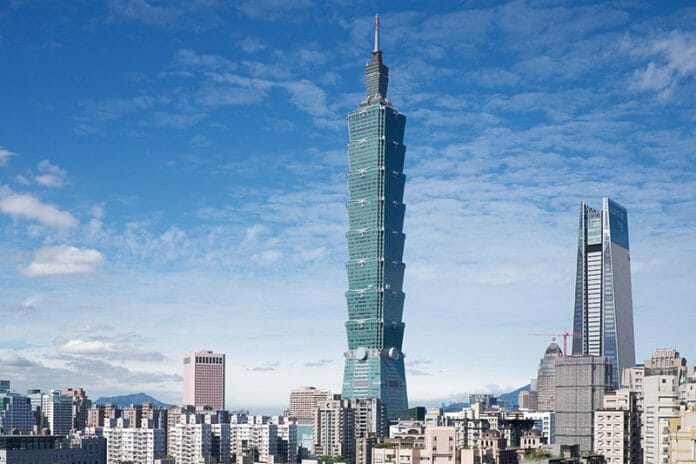Taiwan is nudging its small and burgeoning companies to expand in Japan rather than mainland China, in a fresh sign of global supply-chain decoupling amid Sino-US tensions.
The island’s domestic start-ups are being encouraged to enter the Japanese consumer market or partner with companies from the neighbouring Asian economy, according to the heads of two Taiwanese government-backed organisations who spoke with the Post.
They also said government agencies are not allowed to steer start-ups toward mainland China, even though it has been the major offshore landing spot for Taiwanese capital since the 1980s.
“We’ve contacted a lot of Japanese accelerators to come into the Taiwan market, and we’ll have start-ups go to them,” said Jay Yang, deputy director general of the government-backed Market Intelligence & Consulting Institute in Taipei. “It’s one of the new government policies.
“We encourage Taiwanese start-ups to cooperate with the Japanese, and we’re working on that because it’s an ageing country and needs a lot of fresh blood to work with them.”
Taiwan’s tilt toward Japan follows efforts in the West over the past few years to diversify supply chains away from mainland China.
Tensions across the Taiwan Strait have been on the rise as US-China ties plunged in recent years. The US has also moved to cut China from the global supply chain of key technology products.
Investments in Japan approved by Taiwan reached US$1.7 billion last year, up from US$728.74 million in 2021 and US$964.37 million the previous year, according to data from the Ministry of Economic Affairs Investment Commission.
“Taiwan wants to diversify its dependence on China the same as Japan, the USA and other countries do,” said Denny Roy, a senior fellow at the East-West Centre think tank in Hawaii. “Taiwan’s government hopes this will create new international business opportunities for Taiwan-owned companies.”
Japan makes sense for expansion-minded Taiwanese companies, analysts said. The Japanese population is larger than Taiwan’s but lacks the market complexity of the US, said John Allen Ku, director of Startup Island Taiwan, a government-backed brand for new companies. Japan has about 125 million people, compared with roughly 23 million in Taiwan.
Three Japanese banks have offered Taiwanese start-ups funding, as well as access to their own clients, Ku added.
Some Japanese partner companies open doors to clients in Southeast Asia and give the Taiwanese start-ups a shot at doing business with them, Yang said.
Japanese firms have raw materials, components and sales-distribution networks that can help Taiwanese partners get ahead, Yang added, while companies from one side seldom compete with those on the other.
“First of all, Taiwan is very close to Japan in terms of trust, culture and history,” Ku said. “On the opposite side, Japan also feels that way about Taiwanese companies.”
Many Taiwanese company founders hope to grow internationally but may lack the knowledge of overseas markets to develop relevant products or services, Ku said.
A government-funded start-up ecosystem builder – Taiwan Startup Stadium – links young Taiwanese firms with foreign accelerators, conferences, tech firms and partners to help them expand overseas.
Taiwan Startup Island said in an industry report with the most recent available data that, between 2015 and the second quarter of 2020, a total of 1,589 early-stage investment deals netted US$4.4 billion.
CakeResume, a seven-year-old Taipei start-up that matches resumes with employers, found one of its major investors in Japan and now taps that funding source for information on the Japanese market, CEO Trantor Liu said.
Lots of Taiwanese want to work in Japan now after Tokyo’s lifting of pandemic controls on immigration, he said.
Small Taiwanese firms are eyeing the US, too, but many worry that it is “saturated” with its own start-ups, Yang said. And Ku noted that racial diversity makes it hard for Taiwanese to grasp the US market.
Gogolook, an 11-year-old Taiwanese developer of anti-scam smartphone apps, set up a Japanese subsidiary in 2020. It works in partnership with the city of Fukuoka, in particular, to fight fraud.
“Because of the digital transformation, Japan faces a more serious fraud problem since Covid-19, and it lacks efficient anti-fraud solutions, bringing great business opportunities to Gogolook,” CEO Jeff Kuo said.
Taiwan’s digital affairs minister, Audrey Tang, has publicly endorsed Gogolook’s work in Japan, a company spokesman said.
Last year, Taiwan Startup Stadium held an event in Japan that gave Gogolook and other young firms a chance to meet Japanese media, investors and partners.
In another move directed at Japan, Taiwan’s National Development Fund invested NT$1.136 billion (US$37.9 million) in the Daiwa Taiwan Japan BioVenture Investment Limited Partnership II fund in 2021, and a further NT$2.648 billion that year in the Daiwa Taiwan-Japan Biotech Fund.
It acquired a roughly one-quarter stake in each of the pooled co-investment funds.
Taiwanese government bodies cannot fund company investments in mainland China nor act to smooth their business in the mainland, Yang said.
For its part, Gogolook shuns investment from mainland China, Kuo said, because it works with other governments on scam-detection projects, and they would disapprove of a link with mainland China.
Nonetheless, around 4,200 Taiwan-invested companies still operate in mainland China, with many taking advantage of cheaper labour costs plus a common language and culture.
Taiwanese firms will still reach the mainland on their own, said Zhao Xijun, an associate dean with the School of Finance at Renmin University in Beijing. Obstacles such as Sino-US trade frictions and other “geopolitical disputes” are temporary and “created by people”, he said, whereas the mainland overall will keep developing economically.
“Investors will look at the long-term benefits,” Zhao said. “They’re all looking at future markets, and the mainland’s development is going smoothly for start-ups.” – SCMP









